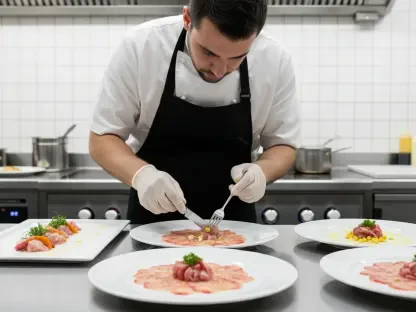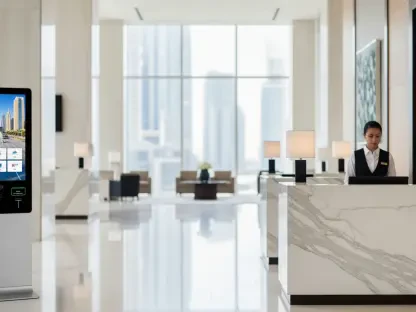The second edition of the Good Food Hospitality Symposium took place in Sydney, drawing together leading chefs, restaurateurs, and industry experts to discuss overcoming challenges within the hospitality sector. Organized in response to the numerous closures of cafes, bars, and restaurants throughout the year, this event served as a timely forum for dialogue and solutions. Hosted by Sarah Norris, head of Good Food, the symposium centered on sharing strategies for success, particularly amidst ongoing economic and cultural difficulties. This gathering emphasized the importance of a collaborative approach in addressing the complex issues facing the industry today.
One significant theme of the symposium was workplace culture, a topic that has garnered increased attention following a series of revealing articles by Good Food and the Sydney Morning Herald. These reports highlighted systemic issues like sexual harassment and the importance of creating positive, safe, and empowering environments for staff. The discussions underscored that addressing workplace culture proactively is not just a moral imperative but also a key factor in business success. By cultivating a supportive and respectful environment, hospitality businesses can not only retain employees but also enhance overall productivity and guest satisfaction.
Tackling Workplace Culture and Harassment
During the symposium, various strategies were proposed to foster strong workplace cultures and tackle harassment. Industry leaders shared their experiences, offering practical advice on implementing robust policies and cultivating an atmosphere of mutual respect. Panelists like Jeremy Courmadias, CEO of Fink Group, and Claire Van Vuuren, chef and owner of Bloodwood, emphasized the need for clear policies and consistent enforcement. They also stressed the importance of training programs that educate staff about acceptable behavior and empower them to speak up against misconduct. The consensus was that a positive workplace culture can significantly enhance employee well-being and retention, which in turn benefits the business.
These discussions were timely, given the increasing scrutiny on workplace conditions within the hospitality sector. Implementing systematic improvements can help manage issues on limited budgets while also improving overall morale. Simple measures like regular staff meetings, anonymous feedback channels, and clear communication of expectations can go a long way in building trust and maintaining a harmonious work environment. The panelists also highlighted the role of leadership in setting the tone for workplace culture. Leaders who model respectful behavior and take employee concerns seriously can inspire a culture of accountability and respect throughout the organization.
Community Support and Shared Experiences
Another vital aspect of the symposium was the emphasis on shared experiences and community support. Industry veterans and newcomers alike were encouraged to share their challenges and successes, fostering a spirit of solidarity. The collective insights of the participants aimed to equip attendees with actionable advice that could be implemented in their own businesses. This collaborative approach not only provides practical solutions but also helps in building a resilient and supportive community within the hospitality industry.
The symposium underscored the significance of learning from each other’s experiences to navigate the complexities of the industry. Attendees were urged to develop systems and processes that could withstand economic fluctuations and cultural shifts. By sharing their journeys, the participants contributed to a collective knowledge base that can help others avoid common pitfalls and seize opportunities for growth. Strategies such as diversifying revenue streams, investing in staff training, and staying adaptable to changing consumer preferences were among the practical tips shared.
Conclusion
The second edition of the Good Food Hospitality Symposium recently took place in Sydney, bringing together top chefs, restaurateurs, and industry experts to tackle ongoing challenges in the hospitality sector. This event was particularly timely, organized in response to the year’s numerous closures of cafes, bars, and restaurants. Led by Sarah Norris, head of Good Food, the symposium focused on sharing strategies to navigate economic and cultural obstacles. The gathering underscored the necessity of a collaborative approach to address the complex issues facing the industry today.
A significant topic of discussion was workplace culture, a subject that has gained attention after investigative reports by Good Food and the Sydney Morning Herald revealed systemic problems such as sexual harassment. These discussions highlighted the critical importance of creating positive, safe, and empowering environments for staff. Proactively addressing workplace culture is not only a moral obligation but also crucial for business success. By fostering a supportive and respectful environment, hospitality businesses can retain employees, boost productivity, and improve guest satisfaction.









